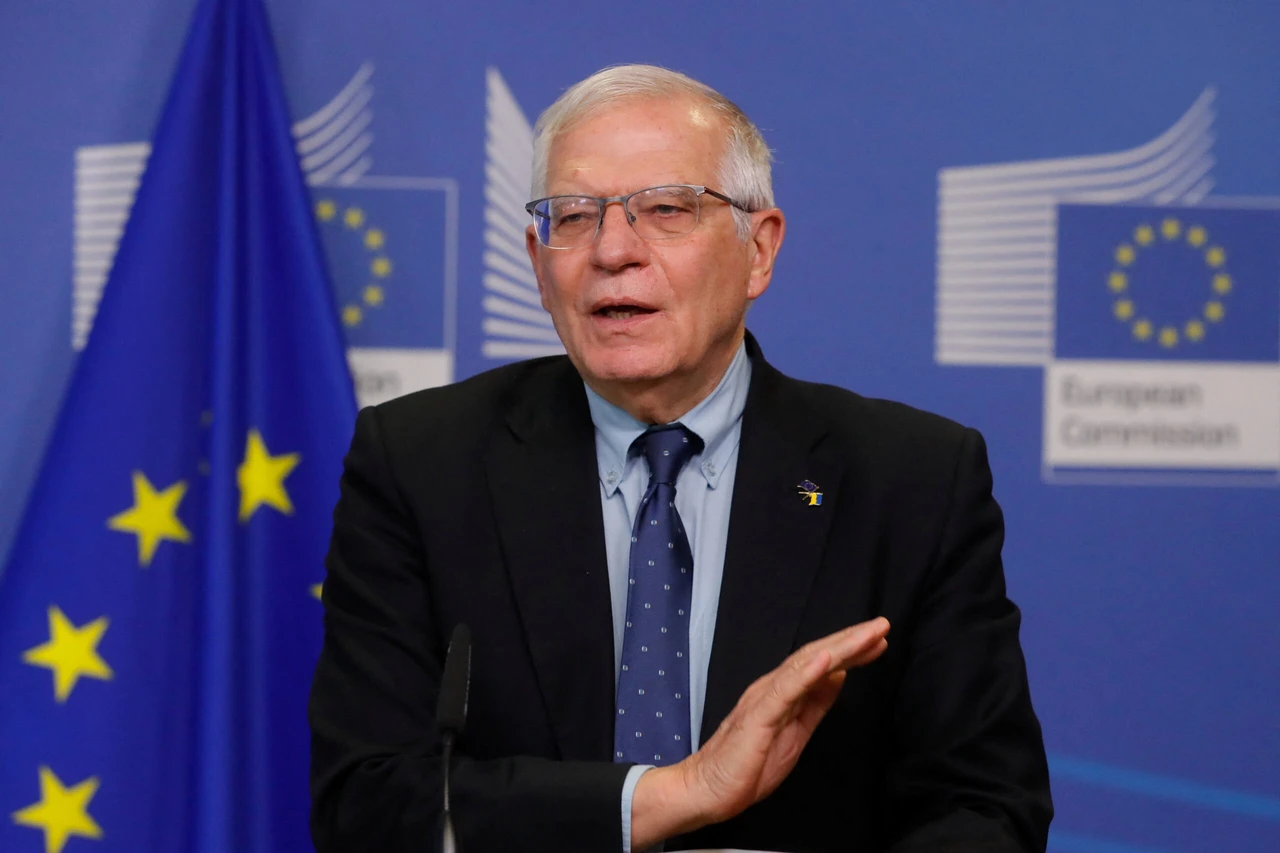EU’s Borrell warns of dangerous spillover risk as Lebanon-Israel tensions escalate
 High Representative of the European Union for Foreign Affairs and Security Policy Josep Borrell attends a news conference with European Commission President Ursula von der Leyen, after Russia launched a massive military operation against Ukraine, in Brussels, Belgium, February 27, 2022. (Reuters Photo)
High Representative of the European Union for Foreign Affairs and Security Policy Josep Borrell attends a news conference with European Commission President Ursula von der Leyen, after Russia launched a massive military operation against Ukraine, in Brussels, Belgium, February 27, 2022. (Reuters Photo)
EU foreign policy chief Josep Borrell on Monday expressed grave concerns over the escalating conflict in Lebanon, describing the situation as “very worrisome, dangerous,” and warning of an increasing risk of regional spillover. His remarks come as tension between Hezbollah and Israel intensifies, with mounting civilian casualties on both sides.
Speaking ahead of the informal meeting of EU foreign ministers in New York, Borrell emphasized the EU’s responsibility to demonstrate that “multilateralism works,” despite the weakening global adherence to international rules. He pointed to Sunday’s adoption of the Pact for the Future as “a light of hope” in an increasingly unstable global landscape.
Borrell highlighted that the EU will focus this week on several key issues, including the ongoing war in Ukraine and the growing crisis in the Middle East. In Lebanon, he noted the alarming scale of displacement as civilians flee escalating violence.
“Many people are moving from South Lebanon to the North because they have been warned that Israeli forces are going to bomb any objective related with Hezbollah,” Borrell stated. “On the Israeli side, more than 100,000 people have already been forced to be displaced due to Hezbollah attacks.”
Borrell called for adherence to a path of security based on a UN Security Council resolution, stressing that the risk of regional spillover continues to grow.
The situation in Lebanon has rapidly deteriorated following Israeli airstrikes targeting Hezbollah. Since Monday morning, at least 492 people, including 42 women and 35 children, have been killed and over 1,645 others injured, according to the Lebanese Health Ministry. The attacks come amid rising tensions sparked by a deadly Israeli airstrike on Friday, which killed at least 45 people, including women and children, in Beirut’s southern suburbs. Hezbollah has confirmed the deaths of 16 members in the attack, including senior leader Ibrahim Aqil and top commander Ahmed Wahbi.
Israeli Prime Minister Benjamin Netanyahu has defended the strikes, claiming they destroyed “thousands of missiles and rockets aimed at Israeli cities and Israeli citizens.”
The violence has led to widespread displacement on both sides of the conflict. Lebanese civilians continue to flee northern regions as Israeli bombings target Hezbollah-linked sites, while Israel has seen more than 100,000 people displaced by Hezbollah’s retaliatory attacks.
In addition to the rising tensions in Lebanon, Borrell expressed concern over the situation in the occupied West Bank, calling for the implementation of a two-state solution. He criticized the current state of affairs, which he said “very much” deviates from international law, UN resolutions, and the EU’s stance.
“I would like to stop talking about the peace process and start thinking about the things that really matter, which is the implementation of the two-state solution,” said Borrell. “The state of Israel already exists, but the Palestinian state must also be implemented.”



